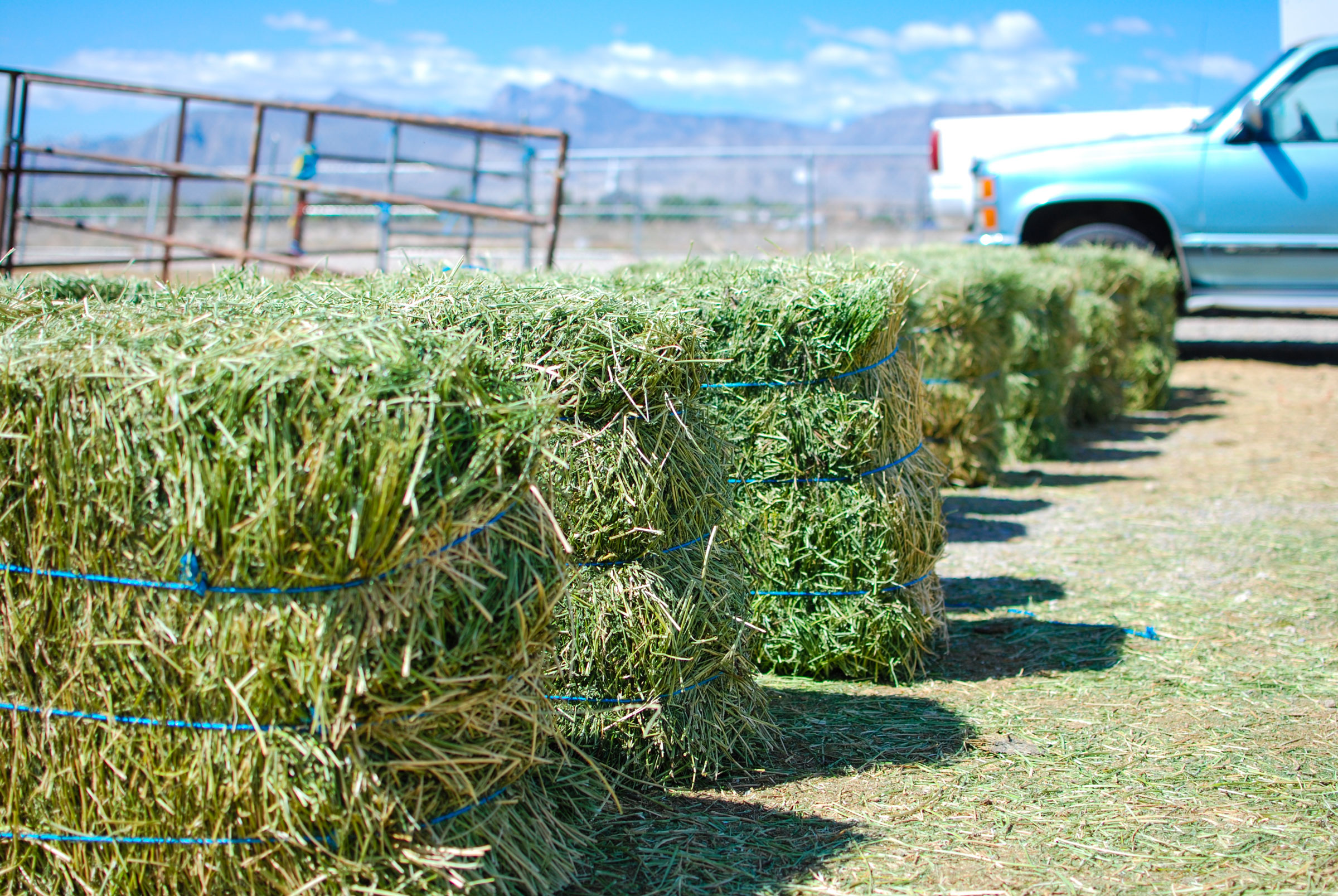
Running short on hay or looking to stretch what’s in storage? Buying the best-quality hay available is more costly, but that strategy can also stretch a short supply. Higher-quality hay can be fed in smaller amounts. When hay supplies are limited, alternatives are needed to provide adequate nutrition for your horses.
Any diet changes should be done gradually, ideally over a two-week time span, to give the horse’s digestive system time to adjust according to Rhonda Hoffman, PhD, a professor and director of horse science at Middle Tennessee State University.
“The drawbacks of pelleted hay and complete feeds are related to the reduced time spent eating and chewing the pellet or feed as compared to hay,” she said. “Horses often exhibit oral stereotypies” if not given enough “chew time.”
When using complete and pelleted feeds or beet pulp, they can’t be portioned out in the same manner as hay. Ideally, hay rations are weighed, however, most often it’s dished out based on the number of flakes. Hay alternatives must be weighed to ensure the horse is receiving the correct amount to meet nutritional needs.
Hay alternatives don’t have to be limited to formulated feeds or bagged hay. Pasture forage can also be considered an alternative to baled hay. Depending on the time of year and availability or grass, increasing grazing time can supplement or replace a hay ration. Horses with metabolic issues might not be candidates for increased turnout, but it is a viable option for stables with available forages.
Haylage is an additional option that Chris Johnson of Eastern Hay Corp. in Pawling, New York, said can be a good fit for some horse owners. Haylage is a grass that’s cut at a younger stage than normal hay. The resulting product has a higher moisture content.
“You have to be careful introducing it and weaning a horse off of it, but for horses that can’t chew dry hay, it’s an option,” he said.


